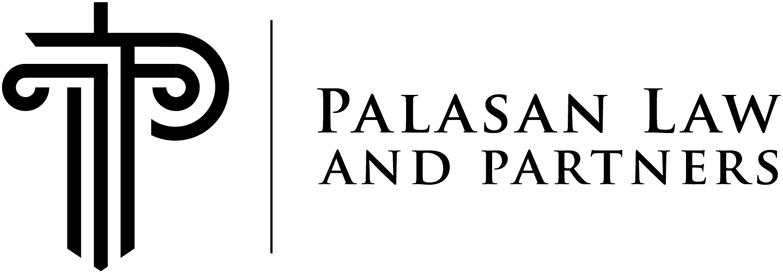All funds of the Philippine Amusement and Gaming Corporation (PAGCOR), regardless of source, are subject to the audit jurisdiction of the Commission on Audit (COA).
Thus held the Supreme Court En Banc, in a 26-page Decision penned by Justice Ramon Paul L. Hernando, granting the Motion for Reconsideration filed by the COA and denying the petitions of Efraim C. Genuino and Rene C. Figueroa. The Court thus reversed its Decision in G.R. No. 230818 dated June 15, 2021.
In 2013, then PAGCOR Board Chairperson Genuino and Senior Vice President Rene C. Figueroa were issued a Notice of Disallowance over PAGCOR’s payment of PhP2,000,000.00 in financial assistance for a flood control project at the Pleasant Village Homeowners Association (PVHA) of Los Baños, Laguna, a private association. The disallowance was later affirmed by the COA.
Genuino filed with the Supreme Court a Petition for Certiorari with a prayer for a Temporary Restraining Order and/or Writ of Preliminary Injunction on April 19, 2017. In a Decision dated June 15, 2021, the Court ruled in favor of Genuino and set aside the COA’s Decision and Resolution. This prompted the COA to file a Motion for Reconsideration.
Figueroa also filed a petition before the Supreme Court imputing on the part of the COA grave abuse of discretion amounting to lack or excess of jurisdiction, which was consolidated with Genuino’s case.
In ruling in favor of the COA, the Court revisited its Decision in 2021 following an exhaustive reassessment of the case records.
In the 2021 Decision, the Court declared that the COA exercises limited audit jurisdiction over PAGCOR by virtue of Section 15 of Presidential Decree (PD) 1869, enacted in 1983, which states that with respect to PAGCOR, COA’s audit jurisdiction is limited to the 5% franchise tax and 50% share of the government in its gross earnings. The Court then held that this express limitation on COA’s general audit power was purposely adopted to provide some flexibility in PAGCOR’s operations.
In the present Decision, however, the Court ruled Section 15 of PD 1869 has been impliedly repealed by the 1987 Constitution, specifically by Article IX-D, Sections 2 and 3. Section 2 states that the COA shall have the “power xxx to examine, audit, and settle all accounts pertaining to the revenue and receipts of, and expenditures or uses of funds and property, owned or held in trust by, or pertaining to the Government, xxx including government-owned or controlled corporations [GOCC] with original charters.” Section 3, on the other hand provides that “[n]o law shall be passed exempting any entity of the Government or its subsidiary in any guise whatever, or any investment of public funds, from the jurisdiction of the [COA].”
The Court held that the broad and encompassing language used by the foregoing provision “unmistakably discloses the objective to avert any exception or limitation to COA’s jurisdiction, and to do away with provisions of law with similar import, such as Section 15 of PD 1869.”
The Court further stressed that Article XVIII, Section 3 of the 1987 Constitution provides that all existing laws, decrees, executive orders, proclamations, letters of instructions, and other executive issuances inconsistent with the provisions of the 1987 Constitution are rendered inoperative.
The Court also noted that Article IX-D, Section 3 of the 1987 Constitution, which prohibits the passage of a law exempting any government entity from the jurisdiction of the COA, neither existed nor had a counterpart provision in the 1973 Constitution, the Constitution in effect when PD 1869 was enacted.
Given that Section 15 of PD 1869 is inconsistent with Article IX-D, Sections 2 and 3 of the 1987 Constitution, the former is hence deemed inoperative.
The Court thus pronounced that PAGCOR, being a GOCC with its own original charter, and its funds, regardless of source, come within the broad purview of Article IX-D, Sections 2 and 3 of the 1987 Constitution. “In effect, the ‘revenue and receipts of, and expenditures or uses of funds’ which are held in trust by or pertaining to it, are subject to COA’s audit jurisdiction, contrary to Section 15 of PD1869, and the restrictions mentioned therein,” concluded the Court.
The Court then proceeded to rule on the propriety of the disallowance assailed by Genuino and Figueroa.
In resolving the issue, the Court reiterated the principle under Section 4 of PD 1445 which states that government funds or property shall be spent or used solely for public purposes. This applies to PAGCOR, as a government agency, said the Court.
While the Court noted that PAGCOR can fund infrastructure and socio-civic projects, such as flood control programs, beautification, sewerage and sewage projects, such must be in the nature of an essential public service, consistent with the requirement that government funds must be used solely for public purposes.
Reiterating its ruling in the 1960 landmark case of Pascual v. Public Works, the Court held that “[i]t is the essential character of the direct object of the expenditure which must determine its validity…and not the magnitude of the interests to be affected or the degree to which the general advantage of the community, and thus the public welfare, may be ultimately benefited by their promotion.”
“Incidental advantage to the public or to the state, which results from the promotion of private interests and the prosperity of private enterprises or business, does not justify their aid by the use of public money,” the Court added.
Applying this to the financial assistance granted by PAGCOR for a flood control and drainage project for PVHA, the Court found that PVHA, a private property, is the primary recipient of the intended improvement, and any benefit to the larger community and the public in general shall, at most, be speculative and merely incidental. The financial grant is thus not for a public purpose.
The Court thus ruled that Genuino and Figueroa, as PAGCOR Board Chairperson and Senior Vice President, respectively, are liable for the disallowance as approving officers and for having exhibited gross negligence.
The Court emphasized that considering the noveltyof the pronouncements in the instant Decision, this ruling “shall be applied prospectively and shall not affect parties who had relied on, and acted upon, the force of former contrary views.” (Courtesy of the Supreme Court Public Information Office)
Full text of G.R. No. 230818 (Genuino v. COA, February 14, 2023) and G.R. No. 244540 (Figuero v. COA, February 14, 2023) at: https://sc.judiciary.gov.ph/230818-244540-efraim-c-genuino-vs-commmission-on-audit-et-al-rene-c-figueroa-vs-commission-on-audit/
Text of the Separate Concurring Opinion of Senior Associate Justice Marvic M.V.F. Leonen at: https://sc.judiciary.gov.ph/230818-244540-separate-concurring-opinion-justice-marvic-m-v-f-leonen/
Text of the Concurrence and Dissent of Justice Amy C. Lazaro-Javier: https://sc.judiciary.gov.ph/230818-244540-concurrence-and-dissent-justice-amy-c-lazaro-javier/
Text of the Concurring and Dissenting Opinion of Justice Antonio T. Kho, Jr. at: https://sc.judiciary.gov.ph/230818-244540-concurring-and-dissenting-opinion-justice-antonio-t-kho-jr/

